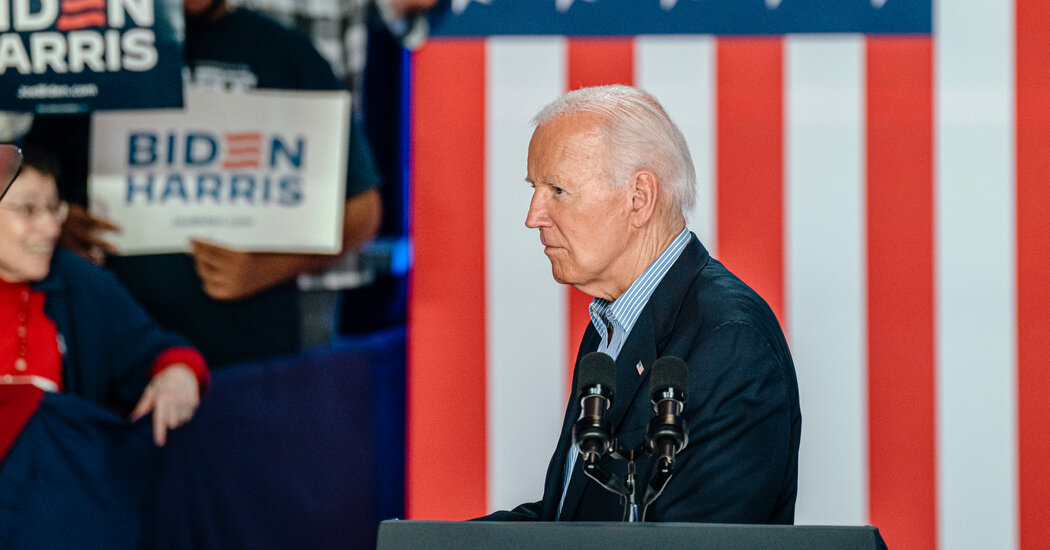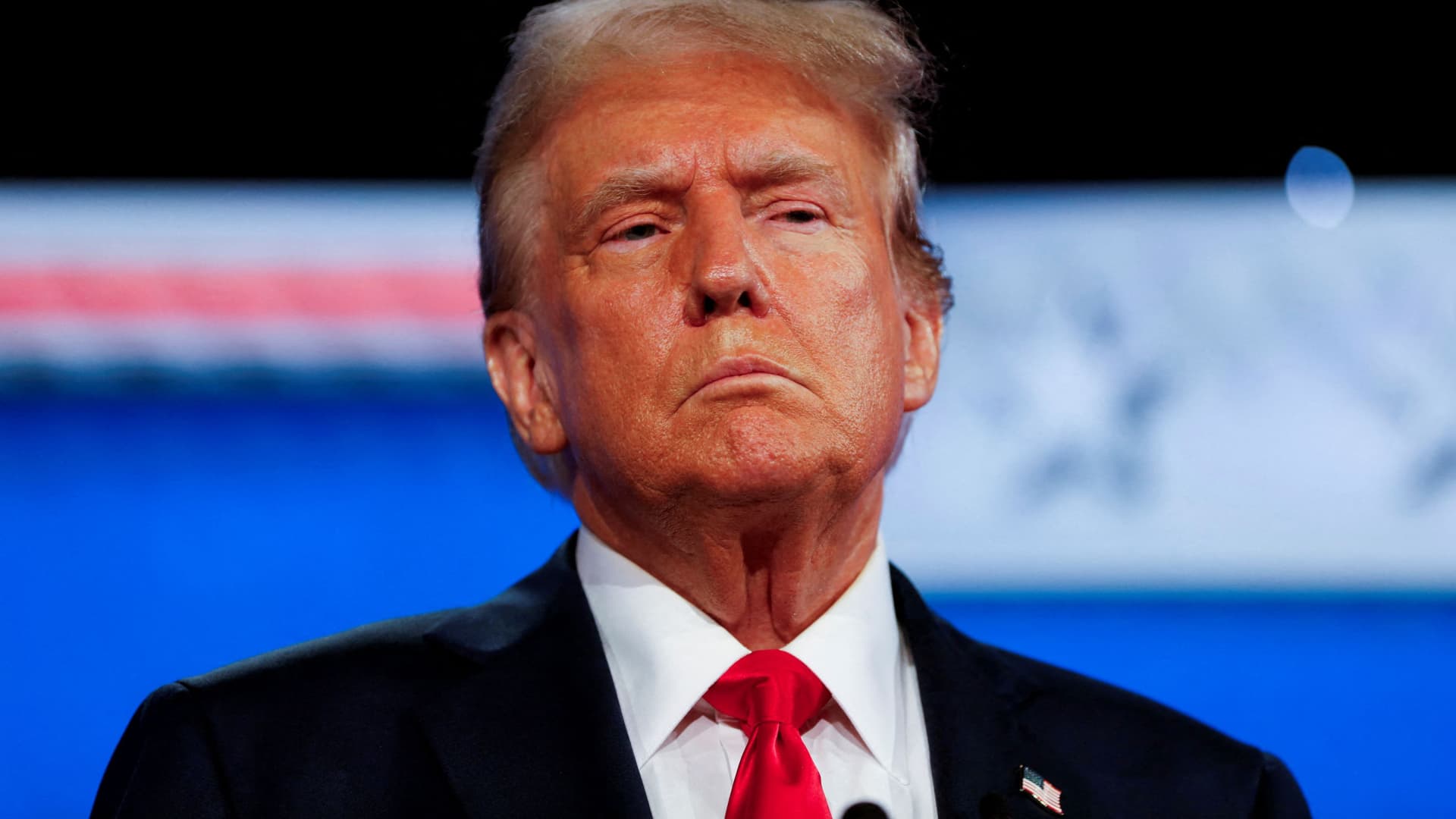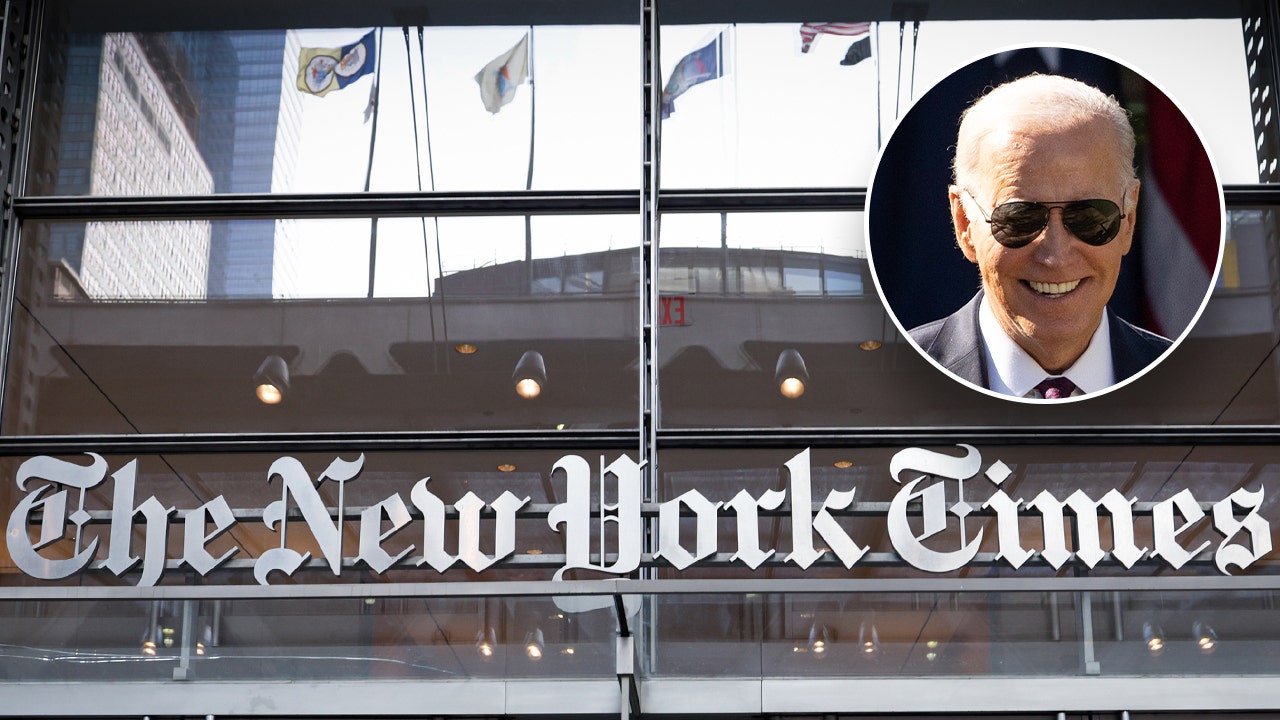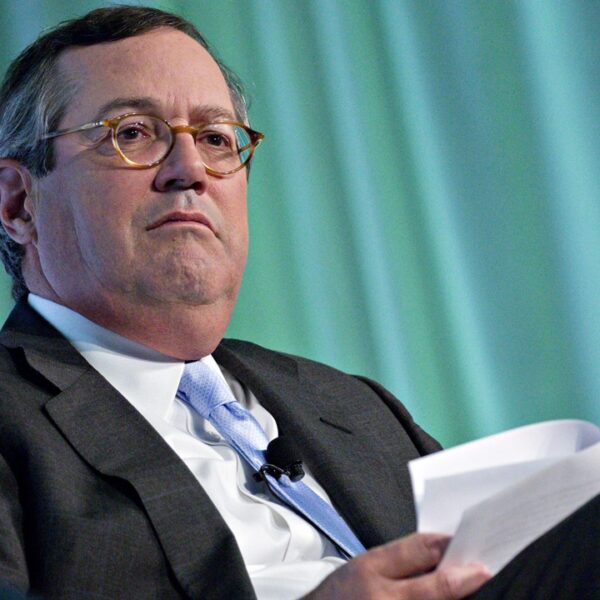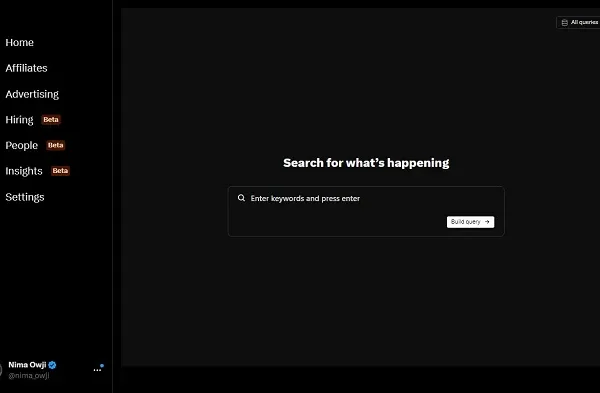Numerous officials, lawmakers and strategists in President Biden’s own party increasingly see his candidacy as unsustainable — and their private anxieties are slowly but steadily spilling into public view, interviews with more than 50 Democrats this week showed.
Growing swaths of Democrats now believe that by remaining on the ticket, the president is jeopardizing their ability to maintain the White House and threatening other candidates up and down the ballot. The moment is setting up an extraordinary clash between a defiant president of the United States who insists he is not abandoning his re-election campaign and members of his party who are beginning to suggest that he should.
“I have less and less confidence in this campaign’s ability to win this race,” Representative Scott Peters, Democrat of California, said in an interview. “If we know we’re going to lose, we would be foolish not to look at another course.”
Representative Angie Craig, Democrat of Minnesota, urged Mr. Biden on Saturday to step aside as the Democratic nominee. “I do not believe that the president can effectively campaign and win against Donald Trump,” she said in a statement.
Lawmakers say they have been deluged with concerns about Mr. Biden’s candidacy from donors and constituents. Among members of the Democratic National Committee, essentially the political arm of the White House, many said that they remained supportive, but even there, fissures are emerging.
And a Democratic member of Congress, a former high-ranking Obama administration official and a senior aide to a prominent Democratic governor all privately used the same word in separate interviews on Friday to describe Mr. Biden’s standing in the campaign: “untenable.”
“It would be good for him to realize that no one is irreplaceable,” said Mark LaChey, the former first vice chair of the Michigan Democratic Party who encouraged Mr. Biden to step out of the race, which is effectively the only way at this point to begin the process of changing the nominee. “A lot of people would be very enthused with someone else running on the Democratic ticket as president. And I think there’s an enthusiasm gap presently, and I think that gap is getting worse.”
Certainly, many leading Democrats have publicly expressed support for the president, or remained quiet about any misgivings. One senior White House official, however, who has worked with Mr. Biden during his presidency, vice presidency and 2020 campaign, said in an interview on Saturday morning that Mr. Biden should not seek re-election.
After watching Mr. Biden in private, in public and while traveling with him, the official said they no longer believed the president had what it took to campaign in a vigorous way and defeat Donald J. Trump. The official, who insisted on anonymity in order to continue serving, said Mr. Biden had steadily showed more signs of his age in recent months, including speaking more slowly, haltingly and quietly, as well as appearing more fatigued in private.
Andrew Bates, a White House spokesman, pointed to Mr. Biden’s comments from an interview on Friday with ABC News, in which he vowed to stay in the race.
In that interview, Mr. Biden also defended his sharpness and ability to serve.
For years, Democratic officials have largely limited their concerns about Mr. Biden’s age and abilities to quiet conversations, though many voters have loudly expressed their reservations about nominating someone who would be 86 by the end of a second term. But in the days since the first presidential debate in June and what some Democrats have described as the campaign’s weak attempt at damage control, the whispered anxieties are turning into a whirlwind of action, though where it will all lead is an open question.
Many Democrats who believe Mr. Biden should exit the race stress their personal affection and respect for him, describing a sense of genuine sadness.
Still, donors are funding private polling to assess how alternatives to Mr. Biden would fare. Other lawmakers are discussing whether and when to break publicly from the president, with one Democratic strategist close to moderate members of Congress predicting that “the dam is about to break” when lawmakers return to Washington next week.
And at least one recent endorser is expressing open misgivings.
Geoff Duncan, a Republican who is a former lieutenant governor of Georgia, campaigned for Mr. Biden the day before the debate, as part of his opposition to Mr. Trump.
But the “debate was a huge eye-opener for me about the physical and mental well-being of President Biden,” Mr. Duncan said on Friday. “It will take a significant amount of counterevidence to unwind what I saw and heard during that debate. That seems like an unlikely scenario at this point.”
There is also a new effort underway to organize delegates ahead of the convention in August to show that rank-and-file Democrats want a different candidate, said an organizer who insisted on anonymity to discuss a nascent campaign.
It will be conducted through a new group, Pass the Torch, which is also promoting a petition for Democrats more broadly, urging Mr. Biden to step aside. A man standing near the president before he spoke at a rally in Wisconsin on Friday held a sign bearing the slogan “Pass the torch, Joe.”
Mr. Biden said he had no intention of doing that.
During his Wisconsin speech, the president struck a defiant tone, saying that no one could “push” him to drop out. “Let me say this as clear as I can: I’m staying in the race,” he proclaimed.
He echoed those comments in his Friday interview with ABC News, and on Sunday he plans to campaign in Pennsylvania.
“President Biden knows better than anyone that campaigns are all about earning voters’ trust and support,” Kevin Munoz, a spokesman for Mr. Biden, said in a statement. “He’s out on the campaign trail doing that — and in the states with the voters who will decide this election. There are a lot of days between now and Election Day, and the hard work of earning every single vote is far from over.”
Mr. Biden’s family holds great influence in his decision-making, and after the debate, they urged him to stay in the race. The decision is effectively his alone: If he stepped aside, he would almost certainly have to release his own delegates, freeing them up to support another nominee.
Some of Mr. Biden’s advisers have suggested that the focus on the president’s age and debate performance is only of interest to donors, the news media and pundits. They said the campaign’s small-dollar fund-raising remained strong, and noted that many Democratic elected officials had publicly stressed their support for Mr. Biden and continued to campaign for him.
But polls show that a strong majority of voters believe Mr. Biden is too old to serve another term as president, including one survey conducted after the debate by The New York Times and Siena College.
State Representative Ruwa Romman of Georgia urged Democrats to pay attention.
“It’s really worrying me because I don’t think people are listening,” she said, stopping short of calling on Mr. Biden to step aside. “It’s just worth thinking about and talking about and really exploring and making sure that we did our due diligence so that come November, we can honestly say we did all that we could.”
In interviews with dozens of D.N.C. members, key party activists, many said that Mr. Biden had their full support. In their view, the election remains a choice between Mr. Biden and Mr. Trump, and they have no interest in reassessing their options.
“I am happy to have President Biden at the top of the ticket,” said Virgie M. Rollins, the chair of the D.N.C.’s Black caucus. “I will take President Biden in a wheelchair before I take the convicted felon.”
Jonathan Saidel, a committee member from Philadelphia, said he thought that Mr. Biden’s ABC News interview had gone better than the debate. But even if it had gone poorly, he said, he would have remained committed to Mr. Biden, arguing that the election was more about convincing voters of the dangers of Mr. Trump than the merits of the current president.
“What I tell people is that they don’t have Jesus and Moses on the ticket,” Mr. Saidel said. “No one is perfect.”
Other Democrats expressed wariness about diving into an unpredictable, messy process of finding a new nominee less than four months before Election Day. There is also no unanimity, in these hypothetical scenarios, about whether the party should immediately unite behind Vice President Kamala Harris or pursue an open nominating process if Mr. Biden steps aside, tensions that may move to the fore in the coming weeks.
A few D.N.C. members mentioned a proposal circulated by James Zogby, a longtime committee member, to establish a more open nomination process in that scenario. It was evidence that even within the most supportive party apparatus, some are openly thinking through other contingencies.
“If it ends up that President Biden steps down, I hope and assume any process to replace the top of the ticket will be fully transparent while empowering our grass-roots base,” Jeri D. Shepherd, a committee member from Colorado, said.
David Walters, a former governor of Oklahoma and a D.N.C. member, has been raising concerns since the debate, citing Mr. Biden’s polling.
“There is only one relevant issue,” he wrote in an email to The New York Times on the Fourth of July. “Who is the best candidate to stop Donald Trump.”
He praised Mr. Biden’s record of legislative accomplishments and his foreign policy acumen, and said that if the president stepped down, “he would receive the accolades of the world for his personal sacrifice for the good of his nation.”
“In politics and campaigns, perception is greater than reality,” Mr. Walters said. “He may be operating at 100 percent capacity. But 14 months into this 18-month campaign, the campaign is losing this argument.”
Reid J. Epstein contributed reporting.

